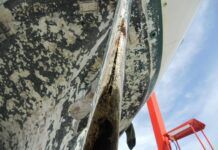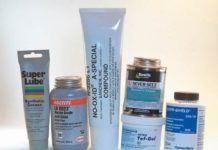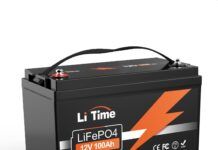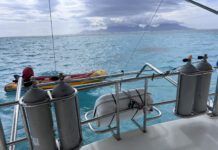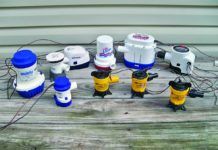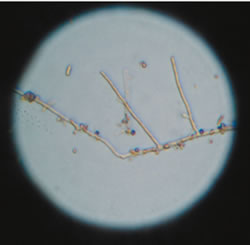
When testing a chemicals toxicity and its ability to biodegrade, a common procedure is to dilute each target chemical at various ratios of interest, and then to inoculate each with an acclimated microbiological seed. For our test, the seed was developed by filling a five-gallon bucket with several gallons of water and a weak mixture (two percent total glycol content) of all of the winterizing agents to be tested.
The bucket was left in a partially covered cockpit-enough to keep bird droppings out but admit dust and spores-for five days during early winter and then incubated in a warm, dark location for one month. During this period we gradually added increasing amounts of each of the products to be tested, eventually reaching 15 percent total glycol and ethanol, in an effort to acclimate the bugs to high concentrations of winterizing agents.
The exact composition of the seed is a major variable in this sort of testing, and results will likely vary seasonally and regionally.
Each product dilution of 100 milliliters (ml) was then dosed with this 2 ml seed and allowed to incubate at 90 degrees F for another 20 days. At the end of each incubation period, an agar-coated slide was dipped in the dilution and allowed to incubate (again at 90 F) in a sterile tube for an additional five days. At the end of the period, the colonies were counted and recorded.
We also tested several products on board, each in a different portion of the potable water system. After four months, samples were tested by dip slide for contamination and, after rinsing, for aftertaste.








